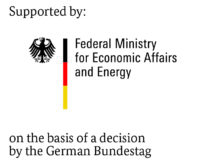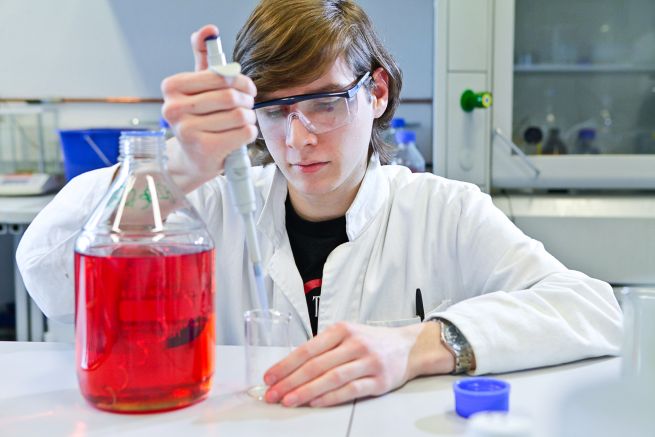OWI Science investigates paraffinic fuel blends
09 July 2021 – Climate protection with new low greenhouse gas diesel fuels is technically possible. Currently, paraffinic fuels such as hydrogenated vegetable and bio-oils as well as products from the Fischer-Tropsch synthesis are the most suitable diesel substitutes. Since fuels in Germany must consist of at least 70% mineral oil, the use of pure paraffines as low-GHG diesel fuels is not yet possible. Therefore, blends of up to 30% represent the market introduction scenario for climate-friendly fuels. Before their broad market launch, it must be ensured that these high paraffinic blends are reliable and safe in operation. In a current research project, OWI Science for Fuels gGmbH is laying the foundations for higher blending ratios than the current upper limit of paraffinic diesel substitute with petroleum-based fuel and biodiesel (fatty acid methyl ester, FAME).
Although paraffinic low-GHG diesel fuels comply with the DIN 15940 standard and are thus technically suitable for diesel engines, it is not sufficiently known yet, how they behave in blends with other fuels. The focus is on the solubility behavior and low-temperature properties of the fuels, which can vary depending on the type and origin of the raw material base and the degree to which they are processed (n-paraffinic or iso-paraffinic). If n-paraffins exceed their solubility limit in the fuel mixture and crystallize, the fuel is no longer homogeneous and may no longer be suitable for use. Other influencing factors include temperature changes (e.g. day and night), seasonal differences (summer and winter), and blending components such as the usual biodiesel content of up to 7%. OWI Science4Fuels performs experimental and analytical laboratory tests of different blends and aims to determine and evaluate an alternative fuel parameter to describe solubility.
From the test results, OWI Science4Fuels develops recommendations for action, such as fuel blending rules for fuel manufacturers and distributors. These could also be incorporated into standards as a standardization of defined blends and support the use of diesel fuels with lower greenhouse gas emissions when they enter the market. The operational reliability and performance of the blends could be ensured by additives precisely matched to the fuel.
The IGF project 21666 N of the research association German Society for Petroleum and Coal Science and Technology e.V. – DGMK, Überseering 40, 22297 Hamburg was funded through the AiF as part of the program for promoting joint industrial research (IGF) by the German Federal Ministry of Economics and Energy based on a German Federal Parliament resolution.
Further information in the project profile







